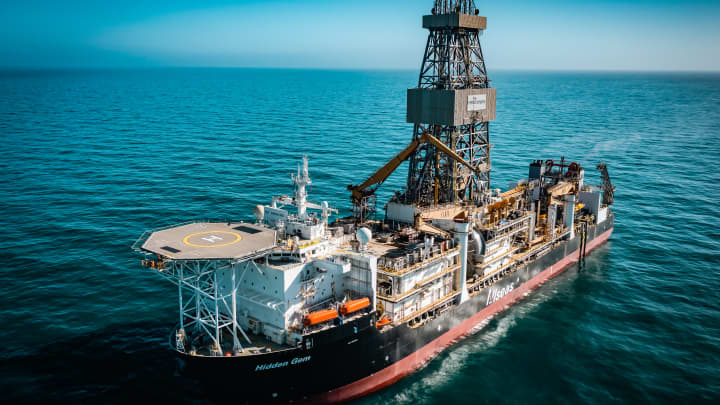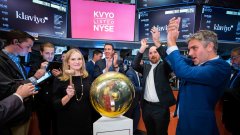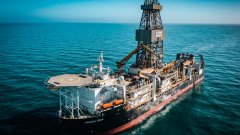
In the Clarion-Clipperton Zone, "they estimate there's more than 20 billion tonnes of nodules in the area," Barron said. "When it comes to nickel, they estimate there's around 270 million tonnes."
For comparison, the world produced about 3.3 million metric tons, or tonnes, of nickel last year. The Metals Company thinks the nickel market could benefit most from deep-sea mining, both because the mineral is integral to energy dense lithium-ion batteries, and because the ramp-up of nickel mining in Indonesia is causing massive deforestation in the country's rainforests, which are vital carbon sinks.
"What I am absolutely convinced of is that we can slow down or maybe even stop the growth in rainforest nickel," Barron said.
One area where The Metals Company holds an exploration license, called , is ranked as having the in the world and encompasses nearly . Though that's only about 0.02% of the entire seabed, the company says this resource, combined with another project area where the company has an exploration contract, — that's about the total number of cars (gas and electric) in operation in the U.S. today.
to conduct a life-cycle analysis that modeled the environmental impact of collecting nickel, cobalt and copper from the seafloor and then processing these minerals on land in Texas.
that The Metals Company's proposed NORI-D project performed better than land-based mining and processing in the majority of impact categories measured, including global warming potential, which was generally 54%-70% lower. Deep-sea mining avoids the emissions associated with blasting, as well as sulfidic tailings, a waste material that can contaminate groundwater.
"If these projects go ahead in the way that is being described and targeted today, it could actually show some significant benefit," said Andrew Miller, COO of Benchmark Mineral Intelligence.
But there are potential impacts that were not captured by Benchmark's lifecycle analysis, including possible damage to deep-sea ecosystems and biodiversity — issues of great concern to the many advocacy organizations and companies that have lined up against deep-sea mining.
A few years ago, the World Wildlife Fund released a business statement calling for a moratorium on deep-sea mining. .
"Scientists are projecting it will take decades before we know enough about the deep sea to make those informed decisions, to not jeopardize and destroy something before we actually really know what it will do for us," said Battle from the WWF.
Although Barron contends that the Clarion-Clipperton Zone, where The Metals Company plans to mine, has been explored much more thoroughly than other areas of the deep sea, he admits that scientists are still discovering a lot about the area.
"Reports suggest that there may be between ," Barron acknowledges.
These include corals, sponges, octopi, sea cucumbers and worms. Some of these organisms rely on polymetallic nodules for shelter or as an important part of their habitat, and they would inevitably suffer were these nodules to be sucked off the ocean floor.
The ISA, based in Kingston, Jamaica, recently missed a key deadline triggered by the tiny island nation of Nauru, an ISA member country that is sponsoring The Metals Company's NORI-D project and stands to receive royalties from mining operations. In June 2021, Nauru submitted a letter to the ISA, notifying the agency of its plans to start mining. According to preexisting rules, this gave the ISA a two-year time frame to finalize regulations before it would have to start accepting mining applications.
Whether these applications now must be provisionally approved is a legal gray area. , and Barron is optimistic that it will be approved even if regulations are not finalized.
"The LTC [Legal and Technical Council] would need to consider our application against where regulations are at the time. And the good news is those regulations are very advanced. And so we think that it would be sufficient to be regulated against or to be measured against those regulations that are nearly finalized," he said.
But Pradeep Singh, a fellow at the Research Institute for Sustainability in Potsdam who attends meetings of the ISA and is a participant in the negotiations, is not nearly as confident that the regulations are close.
"The ISA has not even developed thresholds on what levels of harm would be deemed acceptable and what levels of harm would not be acceptable," Singh said. "And so it would take, I think, quite a long time before we get to a point where all 36 states are happy to sign off on the regulations."
However, The Metals Company, which was founded in 2011, is under serious pressure to prove its value. Its SPAC merger in 2021 proved disastrous, as a . Today, the company's stock price has plummeted almost 90%, and shipping giant Maersk, which once held more than 9% of the company's shares, divested in May.
"They have to show a business case pretty soon," Benchmark's Miller said. "Money's not infinite for these types of projects."
But whether the potentially big business of deep-sea mining will make the global metals industry more or less sustainable and whether the inevitable ecosystem impacts will prove worth it for the clean energy returns remain a matter of debate, perspective and scientific inquiry.
Correction: The NORI area, where The Metals Company has an exploration license, is ranked as having the largest undeveloped nickel deposit in the world. An earlier version of this story misstated the name of this area.




